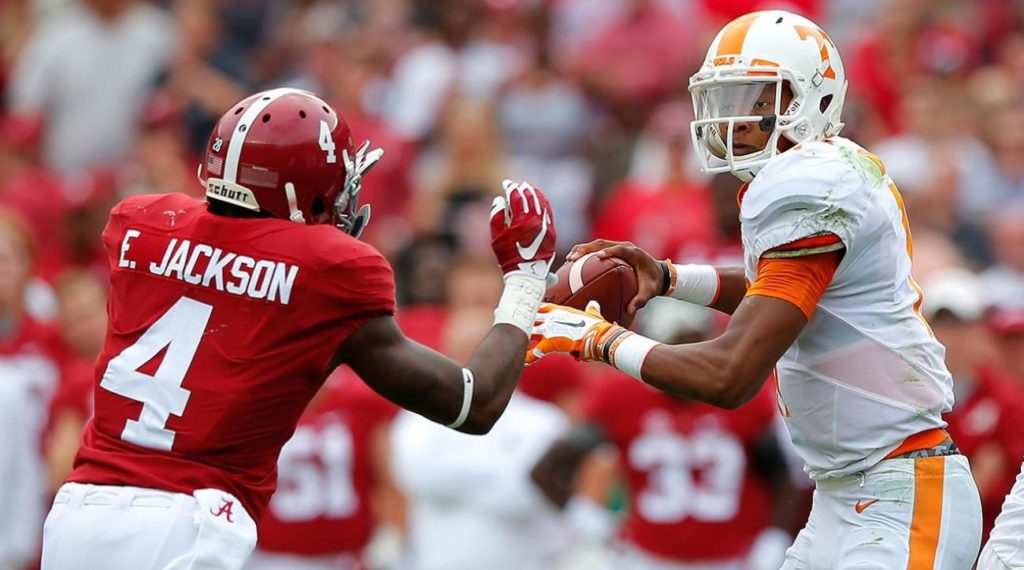Written by Steward Mandel at FoxSports.com
The headlines have blared relentlessly over the past several years, declaring the NCAA’s amateurism model “under attack,” being “blown up” and facing its “final stand.” There’s been a book, a documentary and endless panel discussions devoted to the plight of unpaid college athletes. Even “South Park” weighed in.
Amateurism, however, is proving more resilient than most college football defenses.
Last week, the Supreme Court declined to hear Ed O’Bannon’s much-chronicled lawsuit against the NCAA, ending a seven-year legal battle. While both the trial judge and appellate courts in the case agreed the NCAA had violated antitrust law, arguably only two tangible changes emerged.
For one, the courts permitted schools to begin awarding full cost of attendance scholarships — a change NCAA president Mark Emmert had begun championing years earlier and that went into effect with the decision still under appeal.
And EA Sports no longer makes college sports video games.
“It certainly is a more modest resolution than we expected,” said Michael McCann, Sports Illustrated’s legal expert and a New Hampshire law professor who covered the 2014 O’Bannon trial. “Amateurism remains, it’s tweaked in a way that provided benefits that maybe would not have otherwise existed before, but I don’t think the world is dramatically different today than it was then.”
Things would have looked radically different if the entirety of federal judge Claudia Wilken’s initial decision had stood. In addition to cost of attendance, the Oakland, California, judge ruled that colleges should be allowed to put aside up to $5,000 a year in a trust fund to compensate an athlete for use of his name, image and likeness. Had her policy come to fruition, the NCAA would have officially entered the world of pay-for-play.
But in September 2015, the U.S. Court of Appeals for the Ninth Circuit reversed that portion of Wilken’s decision while upholding the rest. The ruling proved dissatisfactory enough that both sides appealed to the Supreme Court, with the NCAA looking to restore its more stringent definition of amateurism and O’Bannon’s team looking to restore trust funds.
To continue reading this article, click here.




